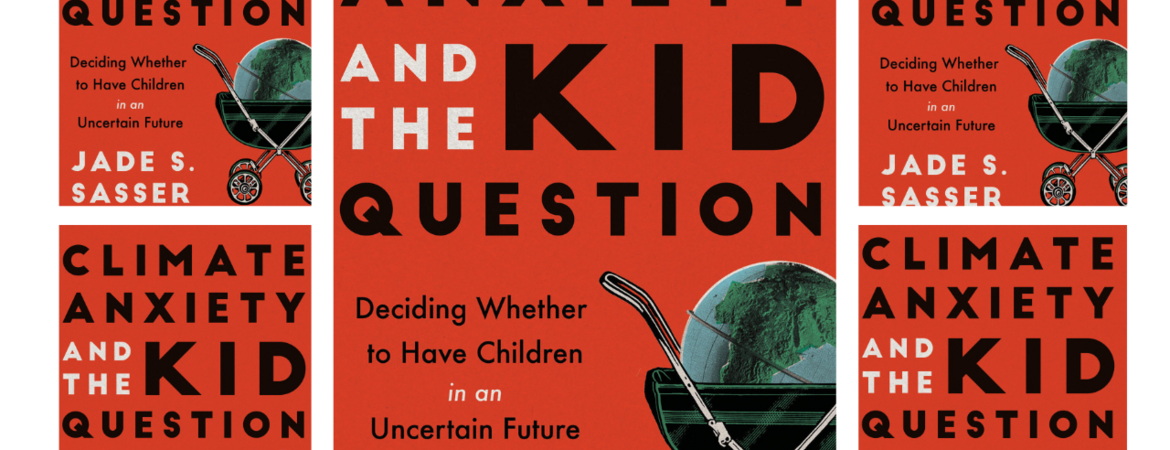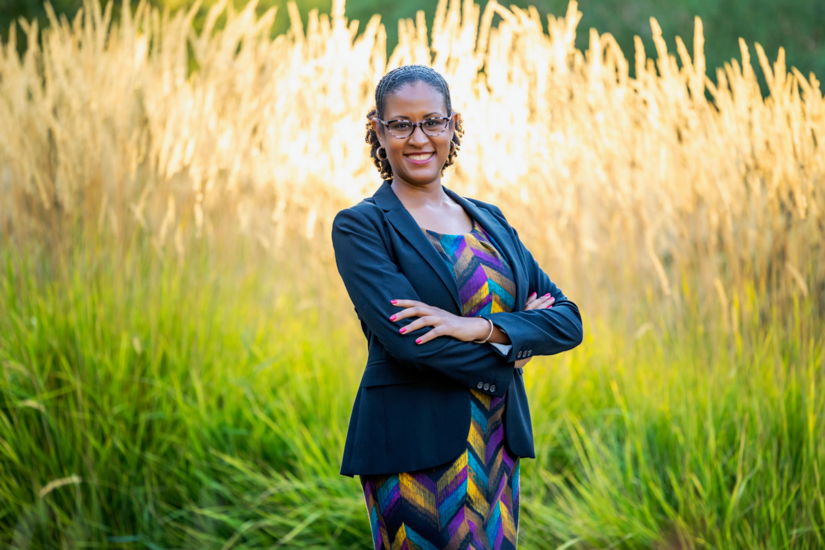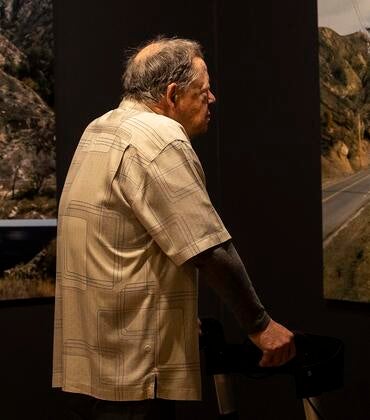
Young people are worried about heat waves, intense storms, fires, and clean air. The ever-changing climate crisis is reaching a turning point for them, so much that they are asking themselves whether to have children.
“Climate Anxiety and the Kid Question,” authored by Jade S. Sasser, an associate professor at the University of California, Riverside, provides readers a view of what young people — in particular young Black and Latinx people — are facing when deciding whether they want to become parents. The book, published by University of California Press, is out April 9.
“People of color were considerably more likely than white people to take climate change into their future reproductive plans and to plan to have fewer children as a result,” Sasser wrote in the book.
Part of Sasser’s research is a national survey with 2,521 respondents between the ages of 22 and 35. About half of the respondents were people of color, the other half were white. Sasser also spent time interviewing dozens of people and analyzing social activist campaigns online. Social inequality played a role throughout.
Sasser said most of the research and the few books that exist on climate emotions reflect “eco-anxiety” focused on the experiences of young, white, middle-class people, largely omitting Black and brown experiences despite their communities being hit harder by climate impacts.
“I am making an argument toward researchers here. They cannot leave people of color and young people out of their research regarding climate change, mental health, and reproductive plans. People of color need to be included because research provides evidence that can be used for policy-making purposes,” said Sasser, an associate professor with UCR’s Gender and Sexuality Studies Department. “…For those who talk about climate and reproductive anxiety, these are not universal experiences. Climate distress is expressed differently by different communities. We need diverse studies.”
Sasser said that through interviews she learned that “for a lot of young white people who are environmentalists, this is the first time they’ve felt a sense of existential threat and that their government is not necessarily going to protect them. That is a jarring feeling for them.”
She also noted that among the long-term societal impacts of fewer children is the future impact on population growth and consequences on supporting the aging workforce. Her first book, "On Infertile Ground: Population Control and Women’s Rights in the Era of Climate Change," won the Emory Elliot Book Award. Sasser has a Ph.D. in environmental science, policy, and management from UC Berkeley.
Sasser urges conversations to make better decisions about the future of the planet.
“Specifically, it can inspire us to become more deeply invested in creating the future we’d like to live in, whether we raise children or not,” Sasser said. “This book offers a cautiously hopeful approach to these questions.”
Meet Sasser at these upcoming events
Instagram LIVE
Date: April 9, 7:30 a.m. PST. The live conversation is hosted by the Climate Psychology Alliance of North America. Follow: @climatepsychologyalliancena
Book launch at Cellar Door Bookstore, 473 E. Alessandro Blvd, Suite B, in Riverside
Date: Saturday April 13, 3 p.m.
KUCR interview
Date: April 11
Tune-in: KUCR, 88.3FM- YouTube channel
Podcast
Check out Sasser’s “Climate Anxiety and the Kid Question” podcast.
Praise for “Climate Anxiety and the Kid Question”
“Sasser conducted dozens of interviews and ‘was struck by how common climate anxiety is among Gen Zers and how that translates into these anxieties about whether to have kids,’ she says. . . . The book places communities of color at the center of the discussion. ‘This is an intersectional issue,’ Sasser says. ‘Climate change hits communities of color differently. Heat events have an impact on pregnancy and birth outcomes, which have long-lasting effects on a child’s growth and development. The people who are hit hardest are pregnant Black women, and the mental and emotional impacts are really hard on communities of color, too.’”
— Publishers Weekly
“Having a child in a burning world is one of the biggest existential decisions of the climate generation. Who can imagine thriving in the future? Who has access to quality of life in the Anthropocene? What are the racial politics of reproduction when resources are increasingly limited? “Climate Anxiety and the Kid Question” makes a critical intervention in the discussion about whether to reproduce in this era of climate emergency. Jade S. Sasser argues that although race has always been an unspoken dimension of reproductive anxiety in environmental discourse, it has taken on new salience in recent movements for racial justice, climate change, and abortion rights. As the first book to analyze how race shapes reproductive and climate anxiety, “Climate Anxiety and the Kid Question” de-centers whiteness in climate emotions research.” — Sarah Jaquette Ray, author of “A Field Guide to Climate Anxiety: How to Keep Your Cool on a Warming Planet”
“Sasser’s work provides much-needed insight into the racial dimensions of climate-and-reproductive anxiety. This book demonstrates why such research is important, and why we need much more of it.” — Britt Wray, author of “Generation Dread” and director of the Special Initiative on Climate Change and Mental Health, Stanford Medicine
“‘Climate Anxiety and the Kid Question’ prompts readers to reflect on their own emotions related to reproduction, race, and climate action, presenting a clear and achievable call to action to increase mental health services for BIPOC folks. A key contribution is framing mental health care and climate anxiety as climate justice issues.” — Corrie Grosse, author of “Working across Lines: Resisting Extreme Energy Extraction”
“Brilliant and urgently needed, Sasser's second book helps us to connect the planetary, the intimate, the structural, and the cultural in order to address climate anxiety and the ‘kid question’— and indeed climate injustice more broadly—in caring, generous, transformative ways. Sasser's investigation of the role of racialization and racism in these areas addresses a critical gap in current understandings of climate emotions.” — Blanche Verlie, author of “Learning to Live with Climate Change: From Anxiety to Transformation”




